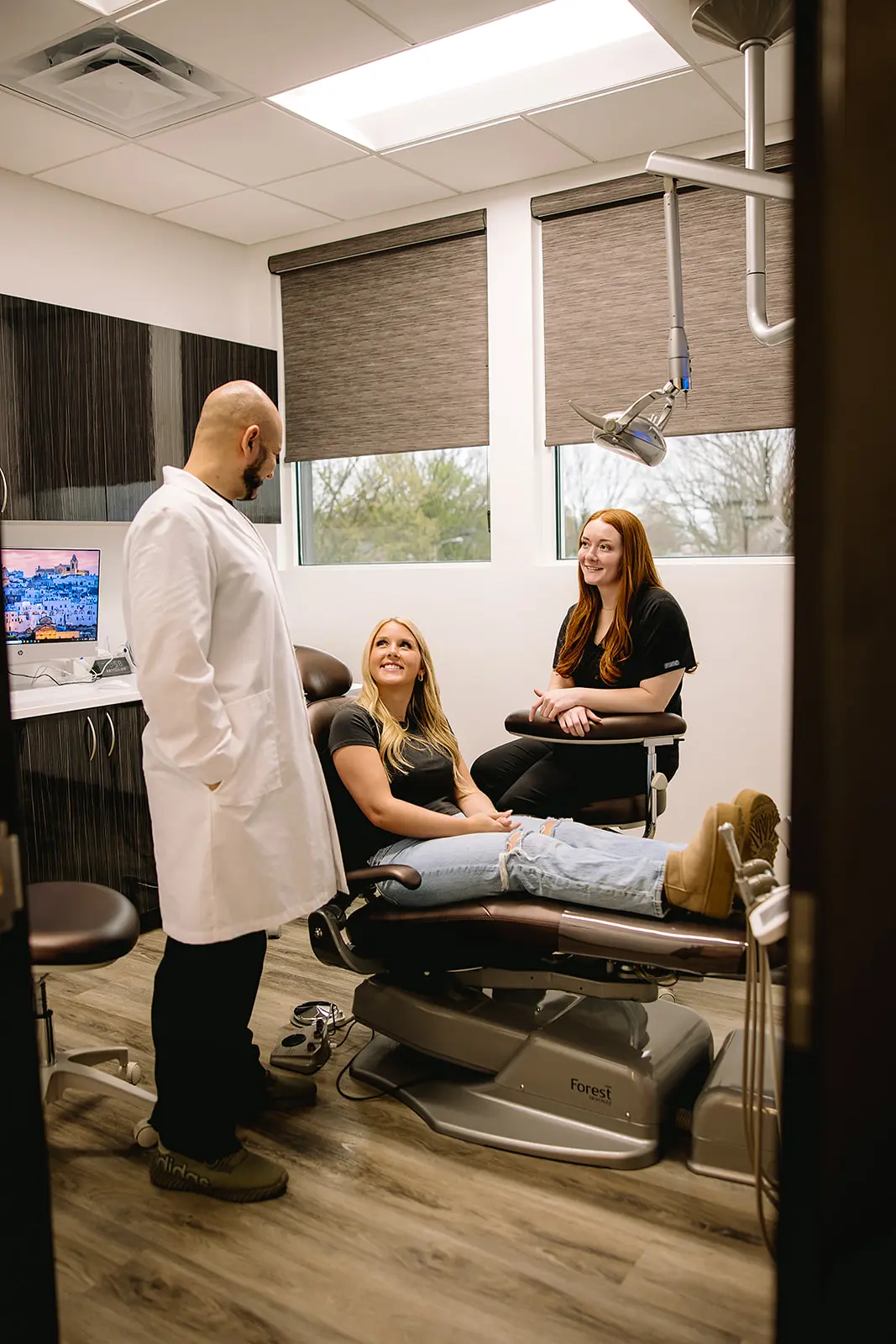
Root Canal
A root canal is a common dental procedure used to treat infected or damaged tooth pulp. During the treatment, the infected tissue is removed, and the root canal is cleaned, disinfected, and sealed to prevent further infection.
Root canal therapy preserves the natural tooth and alleviates pain, restoring oral health and function.

Same-Day Crowns
Utilizing oral scanners and in-house milling units, we offer same-day crowns for efficient and convenient restoration of damaged teeth. After preparing the tooth, we use digital scans to create a precise 3D model. These images allow for the design and fabrication of a custom crown on-site.
With our streamlined process, patients receive a durable and natural-looking crown in just one visit, eliminating the need for multiple appointments.
.webp)
Implant Placement
Implant placement involves surgically inserting titanium posts into the gums to replace missing teeth. Implants become artificial tooth roots that support different dental restorations, such as crowns, bridges, or dentures.
Our team plans and executes the implant placement procedure to ensure optimal positioning and integration with the oral tissue. The result is a long-lasting and natural-looking tooth replacement.

Broken Tooth Replacement
Depending on the extent of damage, solutions may include dental crowns, bridges, or implants to restore the appearance and function of the broken tooth. Dr. Sam and his team evaluate each case individually to determine the most suitable treatment plan, guaranteeing optimal outcomes for patients.
.webp)
Emergency Care
As a walk-in practice, we understand the urgency of dental emergencies and offer immediate care to address your needs. Available 24 hours a day via phone, our team is ready to assist you with any dental concerns or emergencies that arise.
With our efficient and responsive approach to emergency care, we aim to have most patients in and out within 1-2 hours, providing prompt relief and peace of mind.
.webp)
Extractions
Extractions involve the removal of a tooth from its socket due to severe decay, damage, or overcrowding. They may be necessary to preserve oral health and prevent further complications, and they are performed under local anesthesia.





.svg)
.svg)
.svg)
.svg)